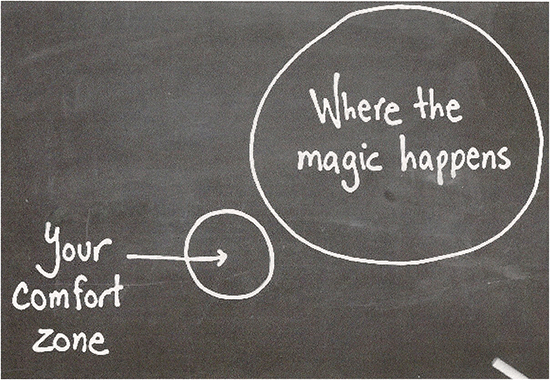
Most of us operate on the assumption, “This is better … therefore, I like it!” In fact, the opposite is usually the case. When we are contemplating change, we are deeply biased towards things that fall within our comfort zone. We usually like what feels reasonably comfortable, and then justify it by rushing to assure other people (and ourselves) that, ‘It’s better!” We need to be deeply suspicious of things that we like. Not because they may not be good – or even better – but because it’s likely that they won’t demand fundamental change of us. It’s a powerful protocol against kidding ourselves.



